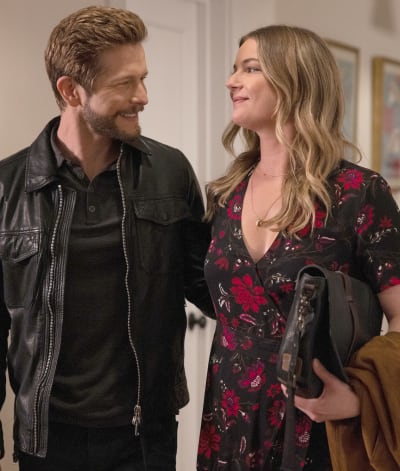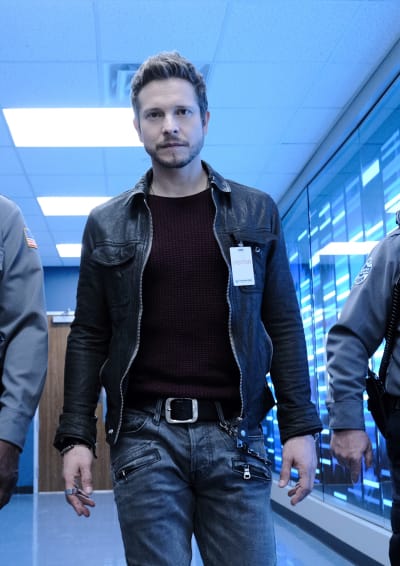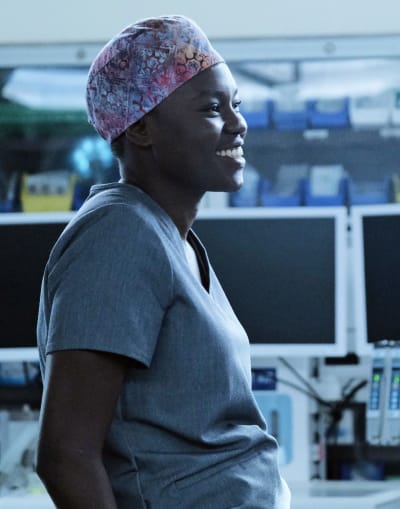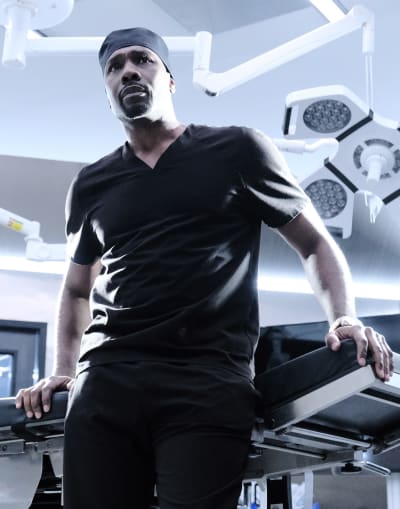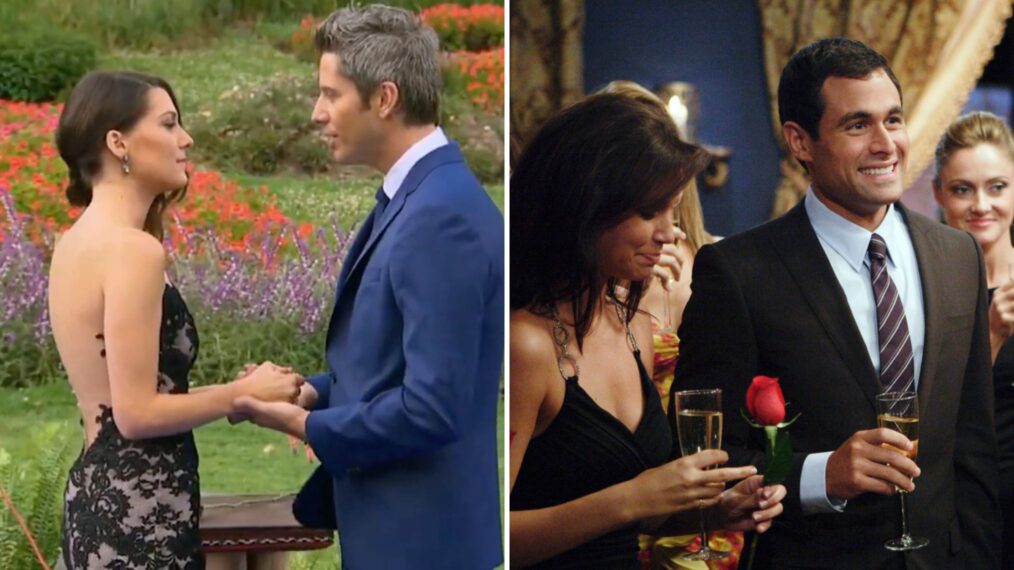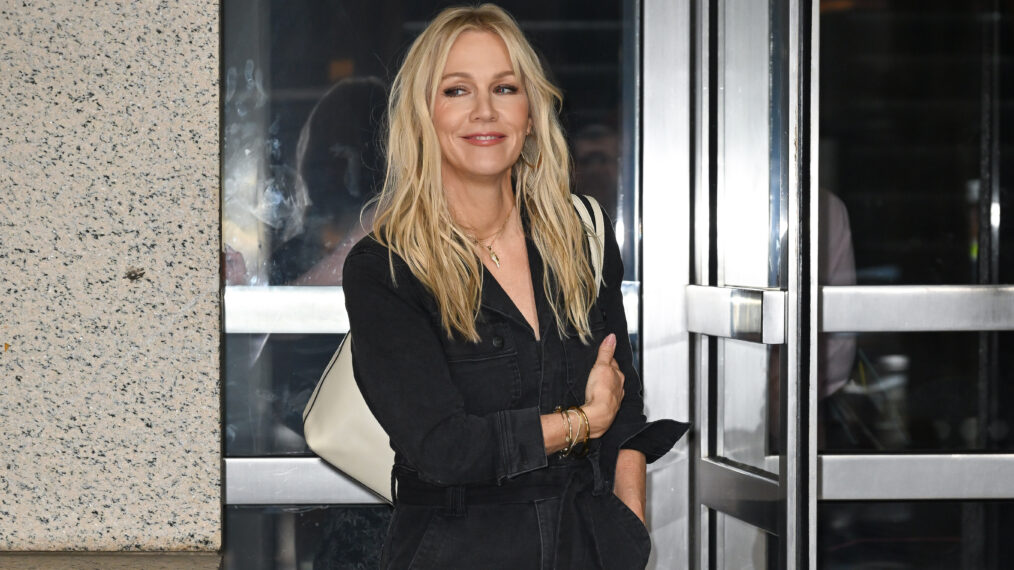Why The Resident Falls Short of the Perfect Netflix Binge Watch

The newest hit medical drama isn’t exactly new at all.
In fact, The Resident is about seven years old, and it stole our hearts from the first episode.
TV Fanatic prides itself on our The Resident Coverage. You can check out our The Resident Reviews for every single episode of all six seasons. We also had some great discussions with The Resident Round Tables.
If you’re checking into Chastain Memorial for the first time, thanks to The Resident dropping on Netflix, we’re pleased to have you on board with this fandom.
You won’t find bigger fans of this series than us here at TV Fanatic.
But with all six seasons dropping at once on Netflix, we can’t help but wonder if The Resident is a series that falls short of the perfect Netflix Binge.
It’s not to say it isn’t holding its own.
The Resident: Why Should Medical Accuracy Be Prioritized Over Entertainment
Netflix has found such vast success with Suits, starting a new renaissance that has prompted a spinoff series, Suits: LA (Although we have some reservations about the Suits: LA casting).
And the streamer has also found great success with New Amsterdam hitting and doing incredibly well. It, too, has sparked discussions of a spinoff series (Although we weren’t particularly thrilled with the series’ final quality).
Netflix has ironically realized that people crave series with multiple seasons that they can dig into, compelling characters that they can gravitate to and adore, and storytelling with longevity.
It’s a comfort in long-form seasons and storytelling because there’s always another episode to click, and we get to experience characters we love having actual character development instead of the confinements of shortened seasons.
The Resident provides all of that with fascinating medical cases, an ongoing theme of shedding light on the pitfalls and corruptness of the healthcare system.
It also introduces us to a plethora of compelling characters who we get to witness genuinely grow and evolve over the series’ stint rather than falling into the same repetitive beats.
With the perfect blend of heartwarming moments, adrenaline-racing action, bureaucracy and red tape, certifiably unhinged villains, and endearing heroes, the series can check off all your boxes for prime entertainment and a great time.
But The Resident isn’t the ideal candidate for the binge format.
For all of the fantastic things about the series, bingeing has a funny way of highlighting some of its most glaring flaws. And without the time and space between watching installments, some formatting and plot issues are more pronounced than ever.
The Resident has always been this high-adrenaline medical series that benefitted from the anticipation it managed to build in between installments.
However, a class Netflix binge has a way of disrupting the natural pacing of a series and all the momentum that gets built within each installment.
It loses something in translation when you delve right into the next episode, and suddenly, the high-stakes scenarios that the series deftly introduces time and again over six seasons don’t feel as significant or impactful at best or lose the plot at worst.
With the series’ theme of exposing how corrupt the healthcare system is, there’s an added layer to the importance of the series.
The Resident: The Lost Potential of Priya Nair
I hate that in a Netflix format, some of the more powerful and intentional storytelling and messages get lost in translation or do not have the desired impact they should.
The series prided itself in its rogue approach to the medical drama. It’s one of many reasons the series was under attack so much during its first season, making the series every bit like Conrad Hawkins himself.
The initial criticisms about The Resident’s cluster of medical inaccuracies, among other things, took a backseat to the entertainment value of the series and the messaging it was trying to evoke.
However, access to this series in full-binge form certainly gives credence to some initial criticisms when the series can’t always hold up to specific scrutiny.
When it comes to controversial characters like Lane Hunter, with naturally slow pacing, the build-up to what is happening makes the most shocking result of her actions so devastating and emotionally impactful.
But somehow, the insidiousness of Hunter’s actions and ramifications aren’t captured the same way when you aren’t forced to mull it over.
The reality of what real doctors like Hunter partake in and the long process towards exposing them with any margin of success doesn’t land well now either.
Certain storylines on The Resident don’t translate well into binge format.
Streaming Is Dominated By a Handful of Shows. Is There Any Room for Smaller Players?
One of the most notable ones is Dr. Randolph Bell’s redemption arc.
Randolph Bell starts the series as one of the most loathsome characters. No one who saw The Resident Season 1 Episode 1 could possibly believe that he’d be remotely likable or bordering on lovable by The Resident Season 6 Episode 13.
But somehow, he is. Combining the interesting stories and journey the writers created for him and Bruce Greenwood’s talent and charisma contributed to this fascinating character arc.
But even for us diehard fans who followed along with it, the heel turn with Bell was something up for debate. In a binge format, Bell’s redemption arc may feel more choppy and unearned.
Many viewers may walk away unable to really appreciate the time it took for them to shift this character from a man they genuinely feared to operate in an OR to a revered mentor, friend, and reformed villain or at least antagonist.
In binge format, Bell’s about-face character change would likely come across as incredibly jarring and disjointed, and it’s harder to sell viewers on the significance of how he changed and evolved when some of his most diabolical and unforgivable misdeeds are still too fresh in their minds.
On the opposite end of the spectrum, with Conrad, you realize how little he actually evolves as a character throughout the seasons, including during a five-year time jump.
It doesn’t matter how much we love him; the man doesn’t change for the better in the least, which is a bit jarring, as he’s often held to such high esteem on a pedestal that he’s never once allowed to fall off without justification.
Related: Has Grey’s Anatomy Become Too Reliant on Formula?
Matt Czuchry slayed the portrayal of this character, so it’s easy not to notice the stagnancy and inaccessibility of his character throughout the series’ run.
It’s also easy to see how some characters suffered narratively. Mina Okafor was one of the greatest characters of the first few seasons, and it was disheartening to see her role diminish and take shape into something that felt so off-brand from the character we had come to know and love.
Something about watching that happen, full-speed ahead without time in between to soften the blow, makes her character’s trajectory and the feelings it evokes all the harder to bear.
And even side characters like Irving have such drastic personality shifts that it’s hard to wrap one’s head around it.
Later, characters like Cade got saddled with such melodramatic storylines that it felt a waste of the actress and the screen time it monopolized.
There’s also a matter of The Resident falling too much into the procedural formatting.
Season by season, it’s easy to get lost in the recent attack against Chastain or the latest threat, but when it all comes back-to-back, you realize just how repetitive some of the storytelling may be.
You especially see it regarding the series’ antagonists. Chastain was always under some form of attack from one angle or another, whether it was a person and their ideology, a company, or the bureaucracy of the healthcare system.
Related: Chicago PD’s Most Compelling Characters Aren’t Who You Think
But with that repetition, some series villains were infinitely more compelling to watch than others, making the repeat storytelling worthwhile.
Speaking of villains, one of the most frustrating aspects of The Resident serving as a Netflix binge is that while the writers did a decent job of making do with completing the series, there was no guarantee that it was supposed to be the series’ end.
We have some bit of closure that is sufficient enough, but we definitely could’ve had and deserved so much more.
The Resident’s final season was a mishmash of interesting plots set up to lead somewhere fascinating, only to never come to fruition again.
It left us with more than our fair share of questions regarding where the characters are now and what they would be up to.
Dr. Bell is the prime example of a character whose fate was mostly left up in the air. Yes, we know he’s content with Kit Voss, which is more than enough solace for us.
But he’s also a man battling MS, forced to pursue another avenue in life now that he can’t practice medicine the way that he could.
The possibilities are endless in exploring what’s next for him or even the type of mentorship that he had going on with Leela.
Related: The Rookie: Broadcast TV Needs More Complex Villains Like Elijah Stone
With Conrad, we finally saw him finding some real happiness with Billie Sutton. Still, we spent too much time on a lackluster love triangle of no real interest before getting to the optimal, albeit still polarizing, result.
It would have been interesting to see the aftermath of the two of them and get an honest look at what it would be like for them as a pairing, given their respective past, and with Gigi.
The series touched upon it but needed to properly delve into it to the degree necessary for it to be a satisfactory arc.
And with someone like Devon, whose career was on quite a trajectory and who faced such complications with Leela, it felt like they never did their relationship conflicts real justice.
But after one botched wedding under Devon’s belt, we actually needed to see his wedding with Leela at full stop.
And there’s even some curiosity about previous characters. One would love to have gotten proper closure on Mina Okafor; the prospect of her returning would’ve been great.
She had one of the more frustrating and underwhelming departures from the series, and in some ways, the series never recovered from her loss.
The abrupt nature of Cain’s exit, even when he was potentially on the cusp of his redemption arc, is also notable.
We had all these little bits and pieces to the story that feels so incomplete, you’re barely sated and desperately wanting a bit more by the time you finish bingeing the series.
While The Resident works as a complete story, it doesn’t by any means suggest that the story itself was finished, and that’s something that lingers even with its finale.
And that’s why, despite being a great binge, it’s not a perfect binge.
But given the Netflix Effect that other series have faced, maybe there’s potential for more success for The Resident in some shape, form, or fashion.
It’s also a series that only recently ended, which means it wouldn’t be too big of a stretch if Netflix picked it back up or someone orchestrated a spinoff.
They wouldn’t have lost momentum between the series’ original run and its hit Netflix.
The Resident in its current state isn’t the perfect binge, but who is to say that they can’t create a new season that better suits the format? We can only hope, right?
Over to you, Resident Fanatics.
For your new fans, have you been enjoying the series?
What are your thoughts about it?
How does having a beloved series find such a massive new audience feel?
Hit the comments!
Jasmine Blu is a senior staff writer for TV Fanatic. She is an insomniac who spends late nights and early mornings binge-watching way too many shows and binge-drinking way too much tea. Her eclectic taste makes her an unpredictable viewer with an appreciation for complex characters, diverse representation, dynamic duos, compelling stories, and guilty pleasures. You’ll definitely find her obsessively live-tweeting, waxing poetic, and chatting up fellow Fanatics and readers. Follow her on X.
Read the original article here



